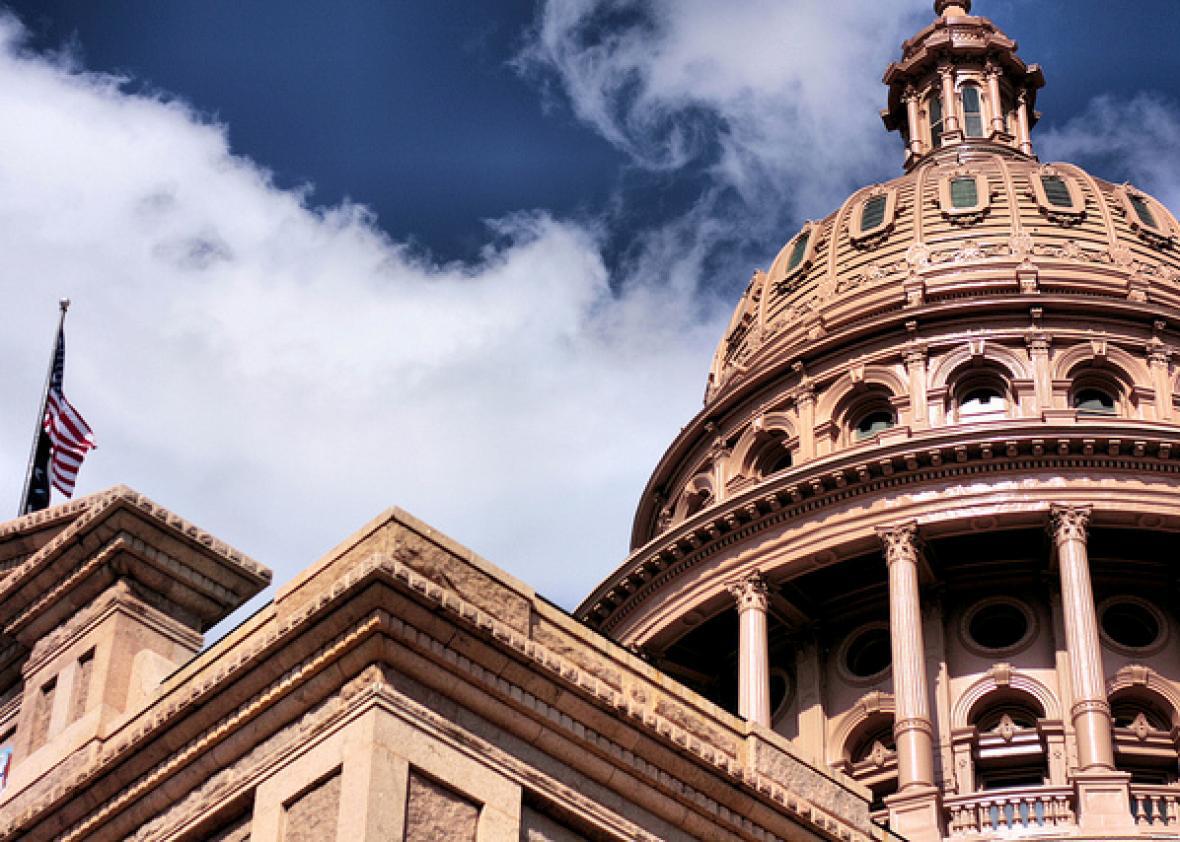On Wednesday, the Texas House of Representatives passed HB 3859, a bill that would allow state-funded adoption, foster care, and family planning agencies to impose their religious beliefs onto prospective parents, families, and vulnerable young people. If passed by the Senate and signed into law, HB 3859 would bar Texas from taking “adverse action” against any private agency that refuses to provide services to young people in their care, or to place young people with an otherwise qualified family, if doing so would conflict with the agency’s “sincerely held religious beliefs”—which the bill itself does not limit or define.
The bill’s definition of “adverse action” is broad and all-encompassing. If an organization or one of its workers act on their religious beliefs, even if doing so means engaging in discrimination, the state cannot withhold state funds, redirect grant money, or take “any action that directly or indirectly adversely affects the [agency] against whom the adverse action is taken… [including] to place the person in a worse position… [or] deter a reasonable person from acting or refusing to act.” Notably, the bill does not just apply to religious organizations who provide these services—it applies to any agency that claims to hold a particular religious belief.
This would have serious consequences for a range of vulnerable communities, including young people and families. The bill would shield agencies from liability even if they refused to provide services to same-sex couples, people of other faiths, unmarried people, single women, and divorced people. The bill specifically notes that agencies may not discriminate on the basis of race, national origin, or ethnicity, throwing into stark relief the legislature’s intent to harm religious minorities, unmarried women, LGBTQ communities, and young people.
As local advocates have pointed out, religious agencies in Texas already engage in discrimination against prospective clients. For example, Christian Homes & Family Services based in Abilene, Texas, will only consider prospective adoptive parents who state that they attend church weekly and have been married for two years. Buckner International, based in Dallas, states explicitly that “applicants must be heterosexual couples or single adults.”
It will only approve single adults on a case-by-case basis on the condition that they do not “cohabit with another adult,” and couples who are married and seeking to foster a child must have been married at least four years. Single women have also been targeted and deemed ineligible by agencies that work in Texas, as have those who have gone through a divorce. In some cases, America World Adoption, for example, will only allow people who have been divorced to adopt or foster children if each parent has had “a maximum of two [divorces] per spouse.” Thus, the bill is a solution in search of a problem, and will merely protect and incentivize existing discrimination.
The bill’s definition of “child welfare agency” is similarly broad and reaches beyond traditional foster care and adoptive agencies. It would also apply to programs and organizations that provide assistance to abused or neglected children, counseling services for children and parents, programs that offer support for foster and adoptive parents, and organizations that provide family support services or “family preservation services.” It also includes those who perform or assist home studies that determine whether or not a family is fit to house a young person, as well as temporary group shelters for children—which would make thousands of Texas’ most vulnerable homeless and runaway youth even more vulnerable.
Specifically, the bill prohibits the government from intervening where the agency “provides or intends to provide children under the control, care, guardianship, or direction of the provider with a religious education, including through placing the children in a private or parochial school or otherwise providing a religious education in accordance with the laws of this state,” or where the agency provider has “declined or will decline to provide, facilitate, or refer a person for abortions, contraceptives, or drugs, devices, or services that are potentially abortion-inducing.”
Nationally and locally, anti-LGBTQ and anti-reproductive rights advocates have strived to frame government oversight and enforcement of nondiscrimination protections as “discrimination.” Just last week, President Trump signed an executive order signaling the federal government’s renewed commitment to broadening religious exemptions at the federal level. In signing the order, Trump claimed to address concerns about the government “discrimination” people of faith experience. Alabama and South Dakota recently passed child welfare agency bills similar to HB 3859, with another currently pending in Oklahoma. State legislatures across the country continue to introduce and debate a wide range of bills that would provide religious exemptions for those with religious beliefs about sex, gender identity, marriage, and reproduction in various contexts, including for health care providers, school teachers, shop owners, people operating businesses, and employers.
The state of Texas will cause tangible harm to already vulnerable communities if it passes this bill. By officially supporting the religious viewpoints of agencies in a way that will limit the provision of services to the general public, and the rights of young people in the agency’s custody, the state improperly allows religious objectors to impose their beliefs on others—which may be constitutionally impermissible.
